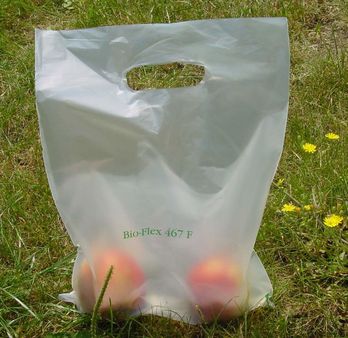Plastic carrier bags: The facts
When they were introduced in the late 1970's, the light, strong and cheap plastic bag was a blessing for every shopkeeper in the world. It is now estimated that the annual worldwide consumption of plastic bags is between 500 billion to 1 trillion but they have become such an environmental menace, that some countries have outright banned them.
Environmental damage
Background
Plastic bags are cheap to produce, sturdy, plentiful, easy to store and carry and have become ubiquitous in our shops, supermarkets and stores since they were introduced in the late 1970’s to replace the more costly paper bags. However, there are environmental concerns about their detrimental impact on the environment.
Danger
Many carrier bags end up as unsightly litter and can kill birds, small mammals and other creatures. The plastic bags that make it to the ocean are eaten by marine mammals who mistake them for food with disastrous consequences.
Life of plastic
Plastic bags are mostly made from polyethylene which is derived from natural gas and petroleum and can take up to 1000 years to decompose. As they slowly decay, the plastic breaks into tiny pieces and leak toxic chemicals into soils, lakes, rivers, and oceans.
Bag tax
Tax
In many countries, Governments have imposed a charge on plastic bags, which serves as a deterrent to overuse and wastage. Ireland introduced a tax on plastic bags in 2002, an idea which has been copied in Belgium, Hong Kong, South Africa, Denmark, Switzerland, Kenya, Thailand and some parts of America.
Banned
In other countries, including Italy, South Africa, Thailand, some parts of China and three states/territories of Australia, plastic bags are banned altogether. Bangladesh slapped an outright ban on all polythene bags after they were found to have been the main culprit during the 1988 and 1998 floods that submerged two-thirds of the country when discarded bags choked the drainage system
The role of supermarkets
Alternatives
As convenience stores and supermarkets are the largest distributor of plastic bags, the responsibility falls heavily on them to reduce the amount of these bags in circulation. Some supermarkets offer incentives to re-use bags such as points which can be redeemed off future purchases and they almost all now offer customers alternative types of reusable bags.
A cheap plastic 'bag for life' that is replaced for free and woven polypropylene bags, are some of the choices. They also offer recycling bins for carrier bags while some stores simply do not offer free bags.
Final word
All this shows that Governments and Supermarkets are taking a step in the right direction and making changes to adopt a more eco-friendly outlook which will slash down the amount of plastic bags that create such an environmental danger.

